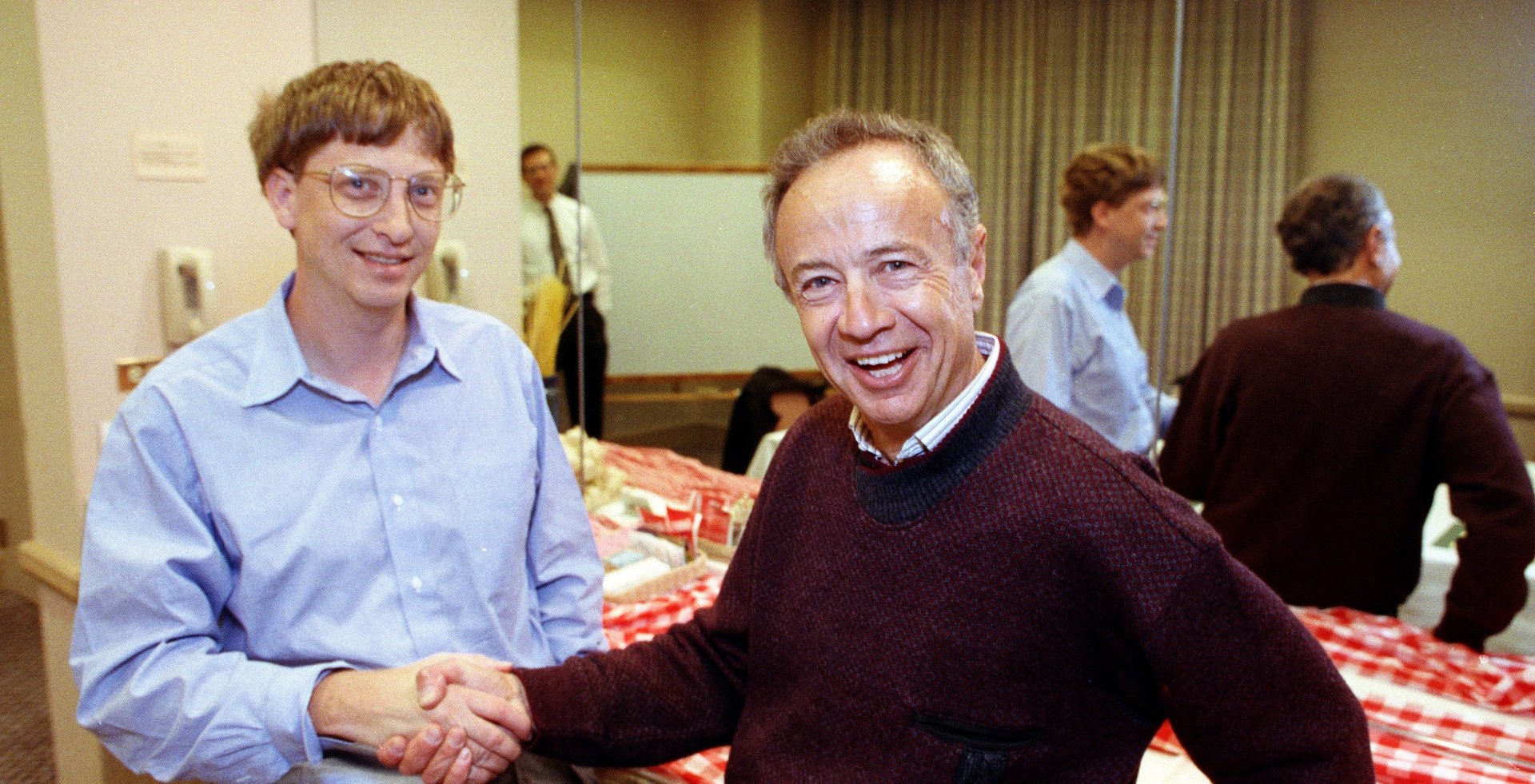Silicon Valley’s confrontational management style started with Andy Grove
Andy Grove, who died March 21 at 79, was a lot of things: a survivor of the Holocaust, a refugee from communist Hungary, a technology pioneer, Time Magazine’s 1997 Man of the Year. His most lasting legacy, however, may be as the father of Silicon Valley’s ruthlessly driven management style.


Andy Grove, who died March 21 at 79, was a lot of things: a survivor of the Holocaust, a refugee from communist Hungary, a technology pioneer, Time Magazine’s 1997 Man of the Year. His most lasting legacy, however, may be as the father of Silicon Valley’s ruthlessly driven management style.
As the CEO of Intel, Grove was obsessed with staying ahead of his competition. His motto, “Only the Paranoid Survive,” encapsulated his world view. In an era where new, decentralized approaches to management like Holocracy are finding favor, Grove’s passing reminds us of an old lesson: Command and control works.
Grove was unrelenting in his expectation of success. At one point, he demanded employees work two extra hours a day without pay. In 1984, Fortune named him among the world’s toughest bosses.
At the heart of his management philosophy was the concept of ”constructive confrontation,” where ideas are picked apart, voices are raised, and feelings aren’t spared. As Grove told the Chicago Tribune in 1996: “We encourage our people to deal with problems without flinching. At its best, the method means that people deal with each other very bluntly.”
Pat Gelsinger, a former Intel executive who went on to become CEO of VMWare, describes sessions with Grove as dentistry without Novocaine.“If you went into a meeting, you’d better have your data; you’d better have your opinion; and if you can’t defend your opinion, you have no right to be there,” he told Bloomberg.
The process produced results for Intel’s customers and its shareholders. But at its worst, it manifested itself as bullying—and that aspect flourished after Grove retired in 1998, “when constructive confrontation was a license for assholes to be assholes,” as one former Intel employee once put it.
Grove’s principles of management, mostly for better and occasionally for worse, have taken deep root in Silicon Valley, where his book High Output Management is passed around like a sacred text. Disciples like Steve Jobs incorporated Grovism into their own businesses. (When Jobs was wrestling over whether he should return to Apple as CEO, it was Grove whom he called for advice. Grove’s response? “Steve, I don’t give a shit about Apple.”)
Grove’s greatest strength as a manager may have been his ability to confront himself. In the early 1980s, sales of memory chips for minicomputers, Intel’s core business, plunged in the face of competition from Japan. Rather than continue to make incremental change, Grove asked a lieutenant, “If we got kicked out and the board brought in a new CEO, what do you think he would do?”
The answer was to exit the business and begin making microprocessors for the new wave of personal computers. The shift was wrenching, and led to 8,000 employees losing their jobs—but it positioned Intel as the industry’s undisputed leader.